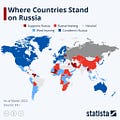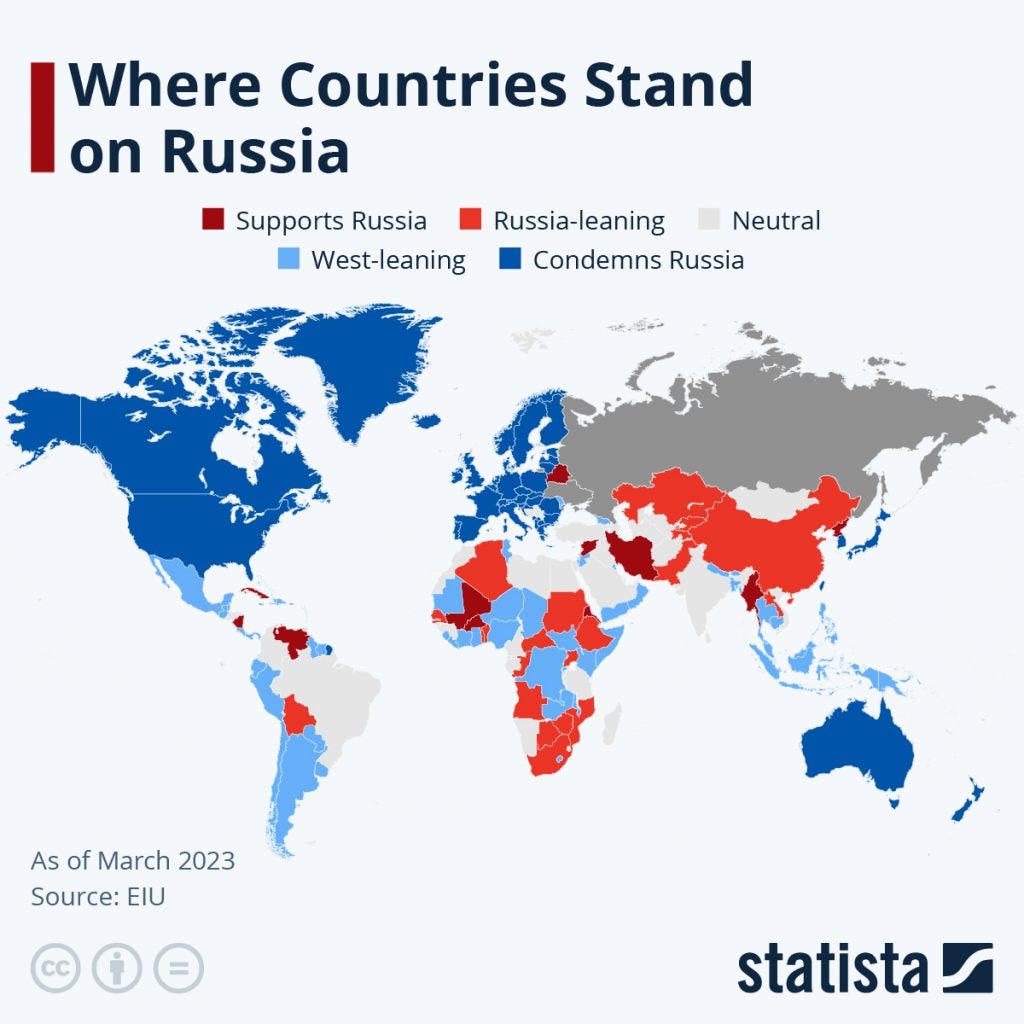It’s difficult to imagine that as the terrible impact of the Russian invasion of Ukraine becomes known to the world, more than a year later the number of countries supporting Russia has actually increased – not decreased.
But that’s the findings of researchers at the Economist.
“While most of Europe and North America condemns Russia for its war in Ukraine, as far as politics goes, it’s not a universal stance,” writes Anna Fleck at Statista, an agency that works in the field of statistical data.
New analysis by the Economist Intelligence Unit has found that Russia’s support base is slowly growing in some parts of the world.
Where 29 countries used to lean towards Russia in 2022, that number has now risen to 35. Conversely, while the number of countries either West-leaning or actively condemning Russia is still by far the bigger group, its figures have dropped from 131 to 122. The EIU says this fall is partly driven by the shift of a number of emerging economies into a more neutral position.
The chart that follows was prepared by Statista. It shows where different countries stand in terms of Russia, as of March 2023.



